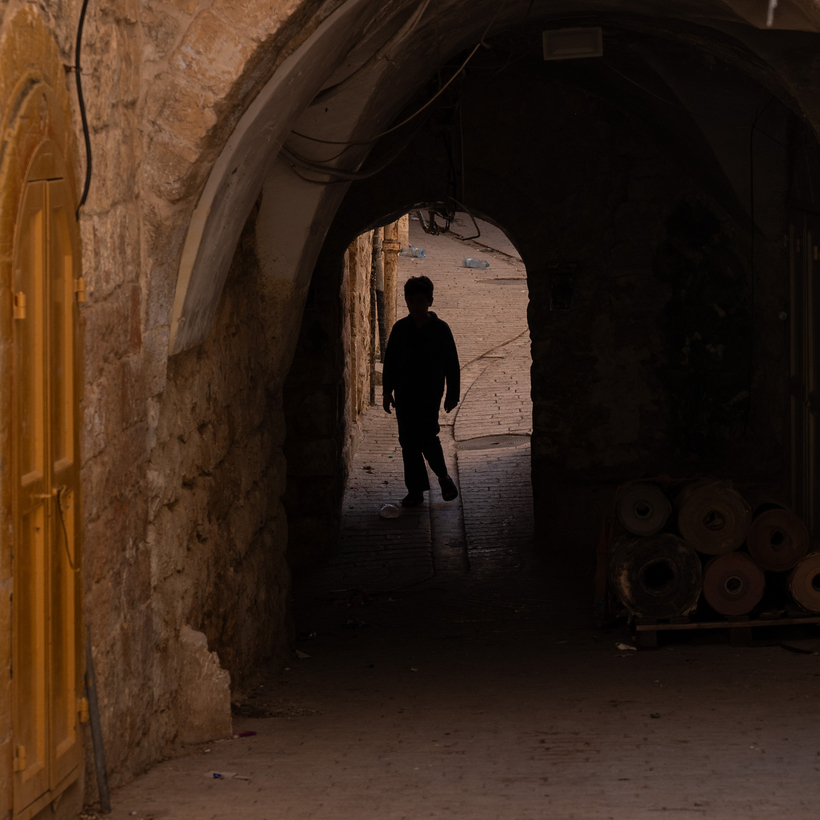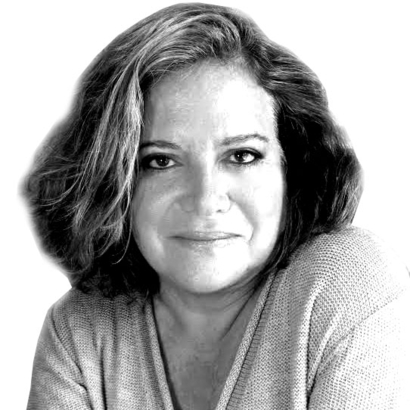I’m not, in general, a big fan of thrillers. And I thought I knew enough about the Mideast—I’ve been to Israel frequently and have written about it, I speak Hebrew, and I have a sister who lives in Jerusalem—to pretty much know what I thought about the tragic nature of its situation. I was raised as a Zionist—my mother’s family fled Germany for what was then known as Palestine in 1936—and have remained one, although not without an ever growing sense of unease about Israel’s ongoing response to October 7, the continued hawkish and autocratic leadership of Benjamin Netanyahu, and the complete collapse of the Israeli left.
All of which is to say that I picked up Lawrence Wright’s new novel, The Human Scale, set in the West Bank, not expecting to be particularly surprised or moved. I assumed, I guess, that it would be full of received wisdom and a bien-pensant view of the horrible Israelis and the defenseless Palestinians. In fact, I would wager that the disproportionate coverage this chronically besieged if geographically insignificant part of the world has received has not given most onlookers a clearer sense of what transpires over there and why; instead, I imagine readers’ eyes glazing over as they open the newspaper and find Gaza and Jerusalem in the headlines once again.
As it turns out, Wright, who has covered the Mideast extensively for The New Yorker and whose book about 9/11, The Looming Tower, received a Pulitzer Prize, has written a meticulously crafted thriller that is also an ambitious political novel. The book throws a wide net, well beyond the usual confines of a whodunit, crisscrossing time periods and encompassing an array of characters (the women are especially well drawn) whose views reflect every position on the spectrum, from that of Hamas to that of the Israeli settlers. I found myself reading, heart thumping, as though everything depended on it—as though every nuanced perception and complex personality would bring me to an understanding that had previously eluded me.
It is May 2022, and 33-year-old Anthony Malik, a half-Palestinian F.B.I. agent, narrowly misses being killed by a terrorist-planted bomb aboard a United Airlines flight bound for J.F.K. from Jordan. He suffers a head injury, loses an eye, and wears a Moshe Dayan–style patch. After six months of rehab, he returns home to discover that his longtime girlfriend, Lucy, has decided to move on.
Haunted by a feeling of isolation—he has no siblings, and his parents are dead—Malik decides to get in touch with his roots and travel to Hebron, where his father was from, to attend a close relative’s wedding. At the same time the chief of his counterterrorism department wants him to look into an unspecified incident but warns him to keep his head down, or “what’s left of it.”

Shortly after Malik arrives in Hebron—“basically a military cantonment ruled by the Israel Defense Forces”—Jacob Weingarten, the kindhearted and unhappily married police chief unloved by his officers because of his “naïve belief in the goodness of humanity,” is decapitated. Yossi Ben-Gal, a 55-year-old, hardened anti-Arabist, comfortable with violent conflict, replaces Weingarten, and a hunt for his predecessor’s killer begins. Malik joins forces with Ben-Gal, who reluctantly accedes to the American’s superior investigative skills.
Along the nerve-racking way to the case being solved, Wright provides a panoramic view of this embattled region by creating characters who express radically different opinions about the scorched landscape that surrounds them—“a country run by children nursed on hatred,” as Malik sees it. Yossi’s daughter, Sara, the most developed character, has escaped to study in Paris; she is “viscerally opposed to the occupation,” although she is also opposed to the easy sentiments that characterize the French intellectuals in her circle—“so censorious and full of themselves, always quick to condemn Israel.” She believes Hamas is bent on “genocide” but also feels that Israel has become “an ideological prison.”
Malik’s beautiful Palestinian niece, Dina, whose wedding he has come for, speaks English well and attends the Hebrew University in Jerusalem. But in the course of the investigation, it is revealed that she has been an informer for the Israeli police, and underneath her bright demeanor she feels all efforts toward peace are doomed. “Here, good people are bad luck,” she says. “They are the ones who get killed or get others killed.” There are moments of recognition amid the mutual demoralization, but these quickly disappear in the miasma of hatred and distrust that infuses the atmosphere.
The lessons of history have gone unattended to, or perhaps weren’t learned to begin with. By the end, Malik finds himself identifying with the Israelis more than with the Palestinians. “As a lawman and an American, he related more to the moral complexity of power than to the abject dispossession of what he had superficially thought of as his people.”
The Human Scale ends, daringly and viscerally, on October 7, 2023, when Hamas fighters paraglided casually into Israel and unleashed an inconceivably savage attack. Moving at a rapid clip but also full of profound reflections on the vagaries of history, Lawrence Wright’s remarkable novel reflects an inescapably harsh reality with realism and compassion. Perhaps the most poignant aspect of the novel is the gradual way Malik and Ben-Gal move beyond politics to a relationship that verges on friendship. The Human Scale offers a broader and more humane vision of the entrenched hostilities between the Israelis and Palestinians and the passions that inform both sides than any polemic or nonfiction account I’ve read.
Daphne Merkin is a Writer at Large at AIR MAIL and the author of numerous books, including the memoir This Close to Happy: A Reckoning with Depression and the novels Enchantment and 22 Minutes of Unconditional Love. She is currently working on a book about her experiences in psychoanalysis


